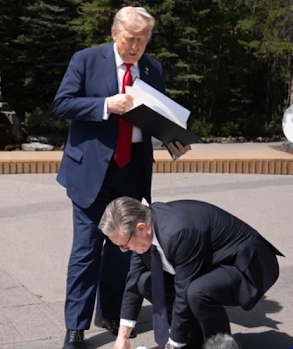This is an odd one: a public furore over obscure, technical matters that are hard for any layman to relate to. The protagonists very much want you to, however - or to make the politicians believe you will.
There's an excellent theoretical argument - to which I heartily subscribe - for commodity markets to be as geographically localised as possible, so that the prices that arise from them are as meaningfully relatable to the underlying "fundamental" factors (supply, demand, transportation & a plethora of other costs) as possible. But what's "possible"? Because there's another critical factor that also needs to feature in any well-functioning market, namely liquidity, which is a massive Public Good (imagine not being able buy essential items, or sell a house). Too small a market, and liquidity rapidly evaporates (or never develops in the first place) - and there's no hard-and-fast rules for what constitutes "too small".
The story so far: When the UK natural gas market first opened up and became actively traded, the precedent was the North American gas market (USA, Canada, Mexico) which we knew for certain was large enough to meet the tests for a viable open market. But did the UK gas sector, a far smaller economic entity, and operating as an island at the time, have critical mass? It transpired quite quickly that it did. Then again, when eventually Continental Europe started actively trading gas, a Dutch hub - brilliantly situated in terms of logistics - turned out to be where the liquidity migrated to, with the UK market, along with every other regional European gas market, still trading actively but, for the most part, as a basis-spread to the Dutch hub. That's how things go. In this the Eu gas market ended up bearing a strong resemblance to N.America where around a dozen actively traded gas hubs operate, but with liquidity centered squarely on the Louisiana hub.
In Europe, the story in electricity has been broadly similar, but slightly more fragmented, notably in Scandinavia where countries have multiple "zonal" markets. There's only one hub, and hence only one wholesale price, in the GB market (N.Ireland is part of the rather small and GB-dependent "all-island" Irish market). And there isn't really a single, clear-cut main European hub, although the French-German border is often a near substitute. A couple more preliminary comments: (a) overall, electricity market liquidity is OK-ish, but often leaves something to be desired - a Bad Thing; and (b) Scandinavia is not really representative of the whole, because it is dominated by hydro-electricity that is usually (outside of prolonged droughts and Europe-wide shortages) extraordinarily flexible, such that certain market actions are readily possible there which are difficult or even impossible elsewhere. (The same goes for New Zealand which often features in these discussions.)
It may have come to your attention that a battle royal is raging - and rather publicly, too - over whether the GB market should be split into a set of multiple geographically-defined zonal markets. In brief, the argument for, is theoretical: that more granular price signals will see better capital investment decisions, specifically, incentivising new power plants to be developed closer to where the demand is - as opposed to "in the North of Scotland" because that's where the wind is strongest and the land cheapest. This, in turn, would reduce the need for (a) as much Grid infrastructure as must otherwise be developed; and (b) as much costly and inefficient "balancing" action by the Grid as will otherwise continue to be needed.
The arguments against are pragmatic, including: the threat to already-iffy liquidity of a fragmented and complex new system; the very tangible impact of uncertainty (will it work? and how?) on the cost of capital in a wildly capital-intensive industry; the multi-year time-delay between initiation of capital expenditures in this sector, and actual changes in the overall infrastructure to come into effect; the irredeemably non-economic basis of many decisions that impact on the issue (I ain't moving to the Hebrides however cheap the electricity there might become). One might add that the Scandinavians have decided they've had enough of their more fragmented systems, too (a big topic).
There are, of course, huge vested interests in play: so we needn't expect a high level of debate. As the lobbying gets more and more shrill, the arguments get more and more streamlined, down to demeaningly simplistic sloganeering that settles nothing. It's now just a war for Miliband's Ear, and increasingly for Starmer's, too, as both sides are screaming that there are votes at stake.
Great spectator sport! With practical consequences too, down the line. If anyone wants my view: ingenuity can solve many practical problems, so some of the pragmatic arguments might be resolved by clever market design: but liquidity mustn't be put at hazard - it's too precious. And that's before you get to the politics of the dreaded Postcode Lottery (which in any case is an argument being deployed by sides!) Oh, the eternal attraction of doing nothing ...
ND






